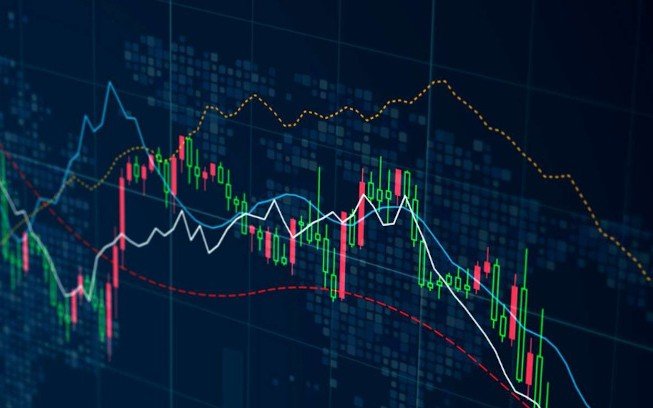
Mastering Forex Trading Online: A Comprehensive Guide
In today’s fast-paced financial markets, forex trading online exbroker-turkiye.com has emerged as a popular avenue for both professional and amateur traders looking to leverage currency fluctuations for profit. Whether you’re new to forex or have been trading for years, understanding the essential elements of this dynamic market can help you make informed decisions and maximize your trading potential.
What is Forex Trading?
Forex, short for foreign exchange, is the global marketplace for buying and selling currencies. It operates 24 hours a day, five days a week, and is the largest financial market in the world, surpassing even stock markets in terms of daily trading volumes, which exceed $6 trillion. Forex trading involves pairs of currencies, where one currency is exchanged for another, with the aim of profiting from changes in their values.
The Basics of Forex Trading
Before diving deeper, let’s cover some fundamental concepts in forex trading:
- Currency Pairs: Forex trading always involves two currencies, known as a currency pair. For example, in the EUR/USD pair, the first currency (EUR) is the base currency, while the second currency (USD) is the quote currency. The price of the pair reflects how much of the quote currency is needed to purchase one unit of the base currency.
- Bid and Ask Prices: The bid price is the price at which you can sell a currency pair, while the ask price is the price at which you can buy it. The difference between these two prices is known as the spread.
- Leverage: Forex trading allows traders to use leverage, which means they can control a larger position in the market with a smaller amount of capital. While this can amplify profits, it also magnifies potential losses.
- Pips: A pip (percentage in point) is the smallest price movement that a currency pair can make. Most pairs are quoted to four decimal places, where a one-pip movement is 0.0001.
Choosing a Forex Broker
Your choice of a forex broker can significantly impact your trading success. When selecting a broker, consider the following factors:
- Regulation: Ensure that the broker is regulated by a reputable financial authority. This adds a layer of security and trust.
- Trading Platform: The trading platform should be user-friendly, stable, and equipped with the tools and features you need for effective trading.
- Spreads and Commissions: Compare the spreads and commissions charged by different brokers, as these costs can affect your profitability.
- Customer Support: Good customer service is vital, especially if you encounter issues or have questions while trading.
Trading Strategies
Successful forex trading requires a strategy that fits your personality and goals. Here are a few common strategies that traders often employ:

- Day Trading: This strategy entails making multiple trades throughout the day, taking advantage of short-term market movements. Day traders typically close all positions by the end of the day to avoid overnight risks.
- Swing Trading: Swing traders hold positions for several days to capture price swings. This strategy allows for more flexibility and can be less stressful than day trading.
- Scalping: Scalpers make numerous trades throughout the day, aiming for small price changes. This strategy requires constant attention and a fast execution time.
- Position Trading: This long-term strategy involves holding positions for weeks, months, or even years. Position traders focus on fundamental factors and long-term trends.
Technical and Fundamental Analysis
To make informed trading decisions, traders rely on two primary types of analysis: technical and fundamental.
Technical Analysis
Technical analysis involves studying price charts and using various indicators to forecast future price movements. Traders use tools such as moving averages, RSI, and Fibonacci retracements to identify trends and potential entry and exit points.
Fundamental Analysis
Fundamental analysis looks at economic indicators, news events, and geopolitical developments that can impact currency values. Traders analyze factors such as interest rates, GDP growth, employment data, and political stability to gauge potential market movements.
Risk Management
Risk management is a crucial aspect of forex trading. No matter how skilled you are, losses are an inevitable part of trading. Effective risk management strategies can help protect your capital. Here are some key principles:
- Set Stop-Loss Orders: A stop-loss order automatically closes a trade at a predetermined level to limit potential losses. Always use stop-loss orders to manage risk.
- Risk Only What You Can Afford to Lose: Never risk more than you can afford to lose on a single trade. A common rule is to risk no more than 1-2% of your trading capital on any trade.
- Diversify Your Portfolio: Avoid concentrating your trades in a few currency pairs. Diversification can reduce overall risk.
- Keep Emotions in Check: Emotional trading can lead to impulsive decisions and significant losses. Stick to your trading plan and avoid making decisions based on fear or greed.
Conclusion
Forex trading online offers exciting opportunities for profit, but it requires a solid understanding of the market, effective strategies, and robust risk management. Whether you’re just starting out or looking to refine your trading approach, continuous learning and practice can help you stay ahead in this dynamic market. By developing your skills, staying informed about market developments, and utilizing the right tools and strategies, you can navigate the complexities of forex trading and achieve your financial goals.

